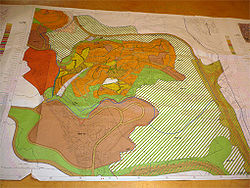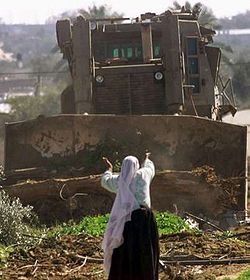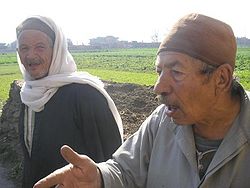Difference between revisions of "Land Struggle"
| Line 9: | Line 9: | ||
*[http://www.hlrn.org/img/documents/israeli-practices-palestinian-people-apartheid-occupation-executive-summary-english.pdf Falk, Richard and Virginia Tilley. Israeli Practices towards the Palestinian People and the Question of Apartheid (Exsum) ](2017) | *[http://www.hlrn.org/img/documents/israeli-practices-palestinian-people-apartheid-occupation-executive-summary-english.pdf Falk, Richard and Virginia Tilley. Israeli Practices towards the Palestinian People and the Question of Apartheid (Exsum) ](2017) | ||
| − | |||
*[http://www.hlrn.org/img/documents/Jamna_Land_Struggle.pdf Hamza Hamouchene, Tunisia: Jemna Oasis ](2017) | *[http://www.hlrn.org/img/documents/Jamna_Land_Struggle.pdf Hamza Hamouchene, Tunisia: Jemna Oasis ](2017) | ||
Revision as of 18:01, 8 December 2018
This section provides a record of historic and contemporary expressions of struggle to claim, attain, restore and/or retain land rights, as a function of the larger historic processes toward developing human rights norms and standards. Since current international law instruments ensuring established civil, cultural, economic, political and social rights—as well as emerging rights—reflect the outcomes of such foregoing struggles. Documents and testimonies gathered in this Landpedia section recognizes that such struggles form an indispensible contribution to our evolving human civilization and, thus, charts its further advancement.
In southern Tunisia’s Jemna Oasis, a region famous for producing its Deglet Nour (dates of light), an inspiring land struggle has taken place, offering a beacon of hope for other North African struggles. Over the past several years, the people of Jemna have regained their land rights from a long legacy of official corruption and land grabbing by political elites.
The dominant corporate food system has failed. The promises of the 1996 World Food Summit, echoed by the Millennium Development goal of reducing hunger by 2015, will not be fulfilled.
In some cases, evicted residents were resettled in new and remote locations, creating huge costs and obstacles for them in accessing work, services, education and maintaining their security. In other cases, people received modest compensations that were by no means adequate, given the tremendous costs and losses inflicted upon them and their children.Cows, Korans, and Kalashinkov: With continued massive human suffering and violence in Darfur, there is discussion about increasing U.S. and international military involvement in the Sudan. With that in mind, this article provides an overview of the 2002 cease-fire monitoring mission in the Nuba Mountains of central Sudan. Singular, bounded, and often inchoate causes—“It is a religious conflict”; “It is a competition for diminishing resources”—are often given as explanations for the conflict there and in Darfur. These explanations are not wrong in themselves, but they are inaccurate and misleading, if one examines them in isolation. The discord in the Nuba Mountains, for example, predates the actual fighting that began in the 1980s and has roots more complex than ethnic or racial difference between the Arab (primarily Islamic) North and African (mainly Christian) South. The current conflict is the most recent product of historical enmities and clashes that coalesce along socioeconomic lines.
Ahwazi Arabs are an indigenous, ethnic, national and a linguistic minority in Iran. Iran is composed of 6 major national and ethnic groups, Persians, Turks, Arabs, Kurds, Baluchis and Turkman. We should note that Mr. Yossef Azizi, Banitoruf, an Ahwazi Arab journalist, human rights and minority rights researcher who has done significant work in this area, has been arrested on 25 April, 2005 for criticizing government’s recent killing of Arabs in Khuzestan. Mr. Banitoruf remains in jail without charges, a clear violation of the United Nations protocols on the right to freedom of opinion and expression. For more information and analysis, click the link for the whole report.
*New Political Science, Marginalization and Resistance: The Plight of the Nuba People(2001)This paper describes partly the rise of the political consciousness of the Nuba people in Sudan. Throughout modern Sudanese political history the Nuba have been victimized first by the colonial powers and later by the northern Sudanese political elite. The present conflict in the Nuba Mountains is the refusal of the Nuba people to succumb to the different types of coercion staged by the Sudan government to ensure political hegemony. This inevitably gave breed to antagonisms against policies of domination. At the core of the dispute, therefore, are factors such as political marginalization, economic deprivation and socio-cultural indoctrination. Few examples are given to demonstrate how the northern political elite manipulates religion and Arabic culture in furtherance of northern Sudanese racial as well as political supremacy.
Unity Among Peasants, landless, Women Farmers and Rural Youth: La Via Campesina is the international movement which brings together millions of peasants, small and medium-size farmers, landless people, women farmers, indigenous people, migrants and agricultural workers from around the world. It defends small-scale sustainable agriculture as a way to promote social justice and dignity. It strongly opposes corporate driven agriculture and transnational companies that are destroying people and nature.
- Maroc : les femmes et les terres collectives, lutte pour la reconnaissance des droits fonciers « » ADFM & Forum des Alternatives Maroc 2009
- Burnat, Emad “Bil`in Marks Six Years of Struggle 18–02–2011" 2011
- Congrès Mondial Amazigh Maroc : Les exigences fondamentales des Amazighs »2011
- E-Torpedo [http://www.e-torpedo.net/article.php3?id_article=1293 La lutte des paysans pauvres d’Ouzioua au Maroc
pour le droit aux biens publics »] 2006
- Heard, Brenda Enduring Palestine Land Day“ 2011Taliwine Intifada
- lahoucine « » Taliwine Intifada 2006
- Michaelangelococco Land day 2008, Jaffa (II) 2008
- Michaelangelococco Land day 2008, Jaffa (III) 2008
- Palestinian Grassroots Anti-Apartheid Wall Campaign Palestinian Grassroots Anti-Apartheid Wall Campaign Bil`in: Popular Struggle
- Popular Struggle Coordination Committee Bil'in Popular Struggle 2011
- Rihan, M. and M. Nasr “Prospects for Land Reform and Civil Society Movements in the Near East and North Africa” 2001
- yisraelpnm “Land Day in Jaffa 2-4-11” http://www.youtube.com/watch?v=m5uMX_n_Ev4&feature=related 2011
- حركة الأرض والكرامة التهاميون يناضلون كالفلسطيين ضد الاحتلال الداخلي الذي سيطر على سلة الغذاء وحتى لاتتحول تهامة اليمن الى سند تملك عقاري لنظا التهاميون يناضلون كالفلسطيين ضد الاحتلال الداخلي الذي سيطر على سلة الغذاء وحتى لاتتحول تهامة اليمن الى سند تملك عقاري لنظا 2011


